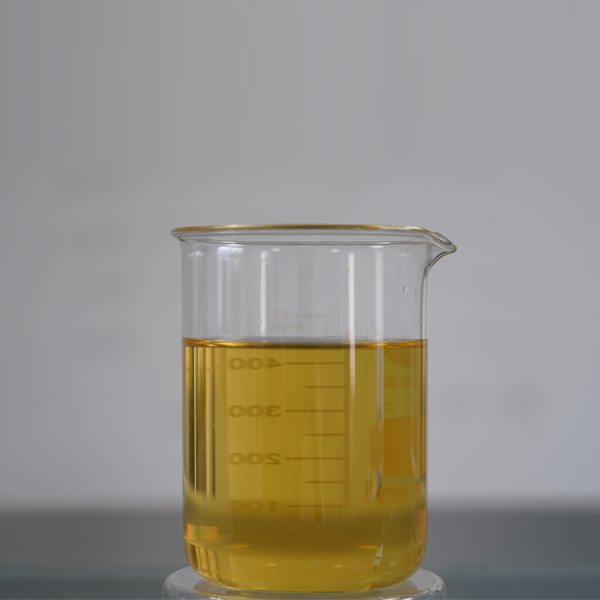
News
Aug . 01, 2024 08:41 Back to list
OEM Water Softening Solutions Using Effective Chelating Agents for Enhanced Performance and Longevity
A Comprehensive Guide to OEM Chelating Agents for Water Softening
Water softening is a crucial process in many industrial and domestic applications, primarily aimed at reducing the hardness of water caused by the presence of divalent and trivalent metallic ions, such as calcium (Ca²⁺) and magnesium (Mg²⁺). Hard water can cause various issues, including scale build-up in pipes and appliances, decreased effectiveness of soaps and detergents, and ultimately higher operational costs. One effective method of addressing these challenges is the use of chelating agents, particularly those tailored for Original Equipment Manufacturers (OEMs).
What are Chelating Agents?
Chelating agents are organic compounds that can form stable complexes with metal ions. They are characterized by their ability to grab metal ions and hold onto them securely, thereby preventing these ions from interacting with other substances that can lead to unwanted effects. In the context of water softening, chelating agents can significantly reduce the concentration of calcium and magnesium ions, effectively transforming hard water into soft water suitable for a variety of applications.
The Role of OEM Chelating Agents in Water Softening
OEM chelating agents are specifically designed to meet the unique requirements of industrial manufacturers. These agents can be formulated to ensure compatibility with specific equipment, processes, and environmental regulations. Their customizability is a key advantage, allowing for tailored solutions that enhance the efficiency of water softening systems.
1. Formulation Flexibility OEM chelating agents can be developed to target specific ions prevalent in a given water source. This customization enables manufacturers to optimize their formulations for local water conditions, ensuring maximum efficiency in water treatment processes.
2. Performance Enhancement By effectively binding to metal ions, these agents improve the overall performance of detergents and soaps. This results in enhanced cleaning efficiency, reduced usage of chemicals, and longer service life for appliances that rely on water.
3. Scale Prevention The use of chelating agents can minimize scale formation in pipes and equipment. This not only reduces maintenance costs but also improves the operational efficiency of industrial systems by maintaining the integrity of machinery and plumbing.
oem chelating agent water softening

Environmentally Friendly Solutions
As environmental concerns continue to rise, there is an increasing demand for eco-friendly solutions in industrial processes. Many OEM chelating agents are being designed with biodegradable properties and reduced toxicity, decreasing their environmental impact while still offering effective water softening capabilities.
Applications of OEM Chelating Agents
OEM chelating agents find application across various sectors, including
- Household Cleaning Products Many laundry detergents, dishwashing liquids, and surface cleaners contain chelating agents that enhance their cleaning power by improving their effectiveness in hard water.
- Industrial Water Treatment In manufacturing processes, such as food processing or textile dyeing, the quality of water is critical. Chelating agents are utilized to ensure consistent water quality and protect equipment from scale build-up.
- Agriculture Chelating agents can also be used in agricultural applications to stabilize micronutrients in fertilizers, enhancing nutrient availability to crops and improving yield.
Conclusion
The integration of OEM chelating agents into water softening processes presents a multifaceted approach to managing water quality. Their ability to effectively bind with metal ions not only addresses the immediate challenges of hard water but also supports broader industrial objectives such as cost reduction, improved efficiency, and environmental sustainability. As manufacturers increasingly seek tailored solutions for their water treatment needs, the role of chelating agents will continue to grow, paving the way for more effective and responsible water management practices in the future.
-
Polyaspartic Acid Salts in Agricultural Fertilizers: A Sustainable Solution
NewsJul.21,2025
-
OEM Chelating Agent Preservative Supplier & Manufacturer High-Quality Customized Solutions
NewsJul.08,2025
-
OEM Potassium Chelating Agent Manufacturer - Custom Potassium Oxalate & Citrate Solutions
NewsJul.08,2025
-
OEM Pentasodium DTPA Chelating Agent Supplier & Manufacturer High Purity & Cost-Effective Solutions
NewsJul.08,2025
-
High-Efficiency Chelated Trace Elements Fertilizer Bulk Supplier & Manufacturer Quotes
NewsJul.07,2025
-
High Quality K Formation for a Chelating Agent – Reliable Manufacturer & Supplier
NewsJul.07,2025
